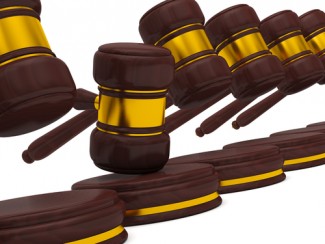Should reversal rates for potential SCOTUS nominees matter? They are relatively low for these judges

Image from Shutterstock.
Reversal rates could become an issue in U.S. Supreme Court nomination hearings, but they should be taken with a grain of salt, according to experts who spoke with Bloomberg Law.
Two potential Supreme Court nominees, Judges Ketanji Brown Jackson and J. Michelle Childs, have spent several years as federal trial judges, Bloomberg Law points out. Jackson spent eight years as a judge in Washington, D.C., before her elevation to the U.S. Court of Appeals for the District of Columbia Circuit last year. And Childs is in her twelfth year as a judge in the District of South Carolina.
According to the liberal group Alliance for Justice, Jackson’s reversal rate is around 2%, and Childs’ is less than 1%. That’s a lower rate than that of other judges in their circuits, the group said.
While reversal rates are an appealing statistic, they can vary based on the types of cases heard by the judges and the makeup of the circuits considering appeals of their decisions, according to Bloomberg Law.
Bloomberg Law spoke with Lee Epstein, a professor at the Washington University in St. Louis School of Law, who offered some statistics. The probability that an appellate panel with three Republican appointees will reverse a conservative district court decision is only 0.23. But the probability is 0.56 for a panel of three Democratic appointees.
Another issue, raised during Jackson’s confirmation hearing, is whether reversal rates should be based only on cases that are actually appealed. Using that metric, Jackson’s reversal rate is closer to 11%, according to the Republican senator who raised the issue, Sen. Chuck Grassley of Iowa.
Experts who spoke with Bloomberg Law said it’s more important to examine the judges’ opinions, rather than their reversal rates, particularly in complex or difficult cases.



